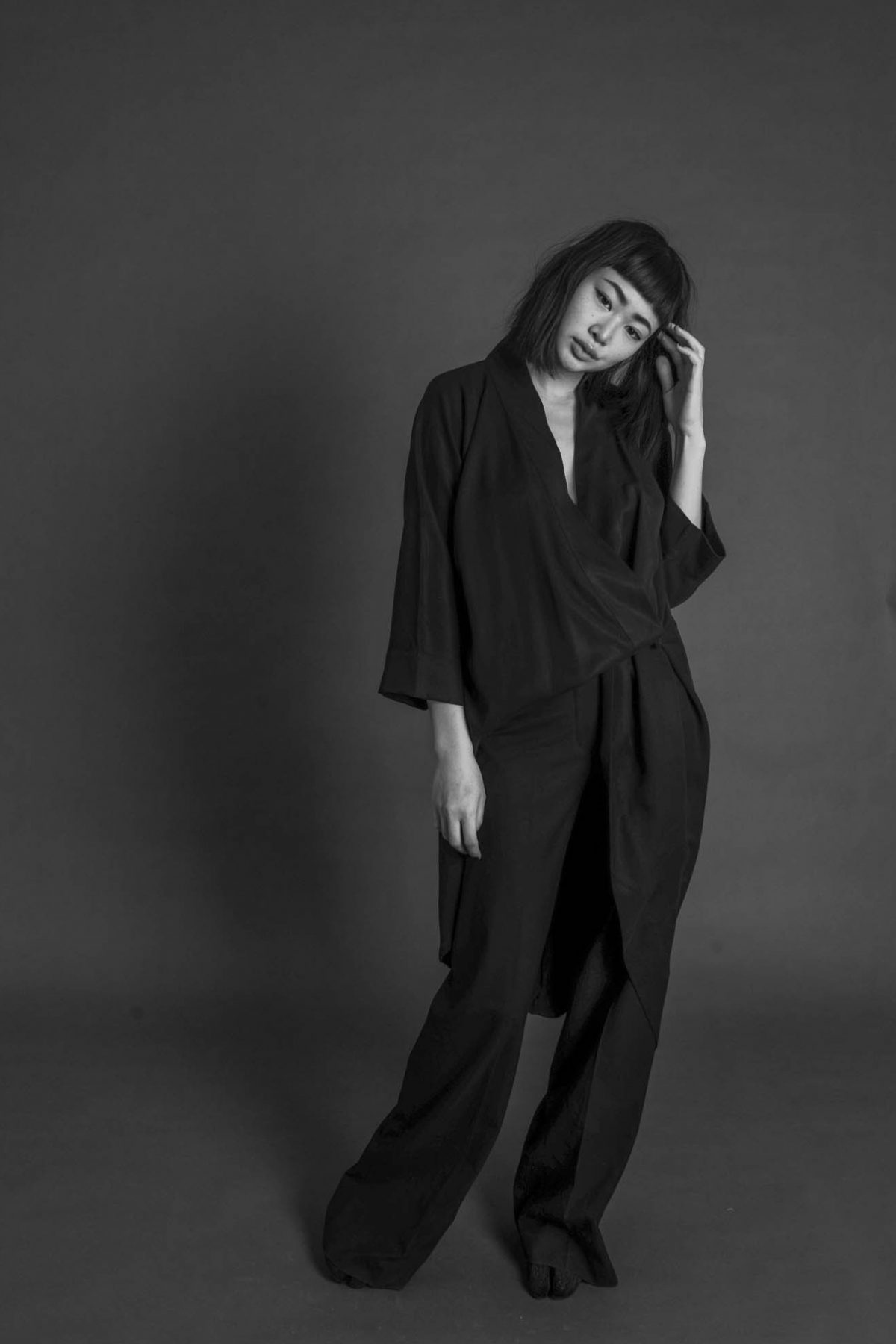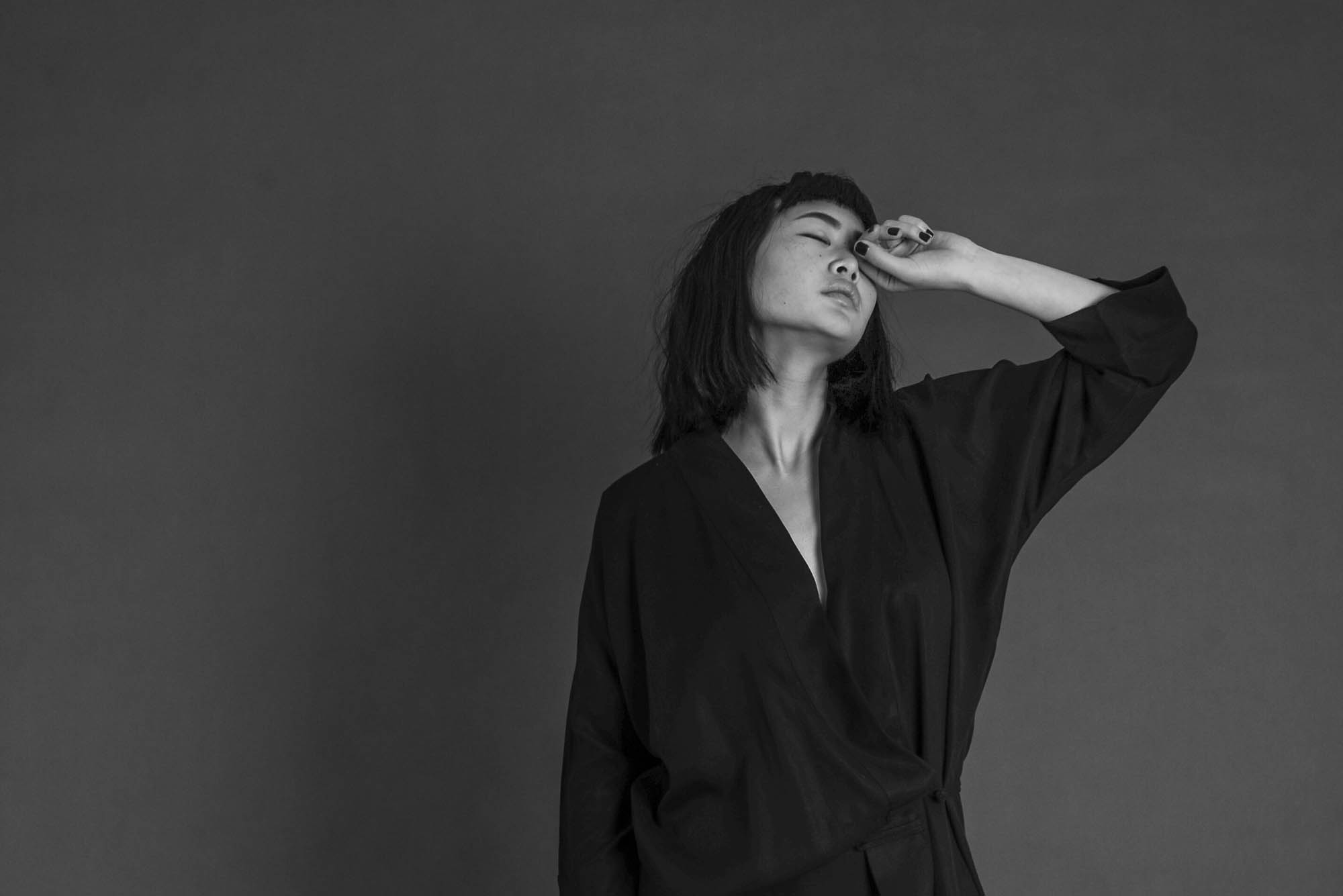
Profile
Alyssa Lau
Alyssa is the Founder of independent retailer, New Classics.
What has been your experience in the fashion industry and how did New Classics come to be?
My first real experience in the fashion industry was a part time job with a local Edmonton-based womenswear boutique called Coup Boutique. I was a retail associate and public relations coordinator, and had the opportunity to not only learn what goes into running both a brick and mortar and e-commerce boutique, but also attend a few buying trips to Paris and New York. Two years ago, when I had the opportunity to enter a two-year biochemistry post-graduate program, I decided to put school on hold to pursue an opportunity that eventually became New Classics.
How have your personal values shaped your work and the framing of New Classics’ message?
My parents have always taught me to value integrity and transparency above all, which has become a central part of the New Classics ethos.
“Above all else, New Classics Studios is an ideology that merges classic and timeless design with quality, social responsibility, and environmental awareness.” When stocking new brands, what do you take into account as part of the evaluation process?
When stocking brands, I make sure they adhere to the New Classics aesthetic; are made with quality and timelessness in mind; and that they promote the Slow Fashion movement. These are the most important deciding factors. While not all of our brands have the same standard of sustainability, we aim to offer a variety of brands with different price points and standards. This has been a conscious choice, as we want to highlight to customers that ‘sustainable fashion’ is not simply one shape or size. ‘Sustainable fashion’ is an umbrella term that encompasses many different movements and ideas, and that’s exactly what we hope to demonstrate to customers with the brands we choose to carry.
Alyssa Lau
“As I’ve aged, I’ve noticed in myself a growing penchant for quality and responsibly crafted pieces that I never truly appreciated when I was a student.”

Has your attitude towards fashion changed as you’ve aged?
Definitely. As I’ve aged, I’ve noticed in myself a growing penchant for quality and responsibly crafted pieces that I never truly appreciated when I was a student. In recent years, I have become more conscious of my purchases, and now avoid buying items that lend themselves to the disposable nature of the mainstream fashion industry.
I also only purchase pieces that I know I will want to continue wearing for years to come, and that will last me for that same period. In fact, I’ve committed to a six month fast fashion fast (or #fastfashionfast, if you will), in which I pledge not to buy any fast fashion pieces for half a year. Should you be up for the challenge, I would definitely recommend joining the #fastfashionfast—even if it’s only for 6 weeks!
What does the Slow Fashion movement mean to you?
The Slow Fashion movement goes hand-in-hand with becoming a more conscious consumer. It means thinking more thoughtfully and critically about whether or not you really need that $8 tee shirt, the one likely made by poorly paid and treated garment workers. It means telling large fashion corporations that you don’t support all of the pollution, water wastage, and toxic chemical dumping, all for the sake of profit. It means investing in clothing that you’ll wear for the next ten years versus ten days.
Something that interests us at Intent is the psychology of fashion and people’s relationships with clothing. How would you describe your own relationship with clothing; has it evolved over the years?
My relationship with clothing has been relatively complex since I first became aware of my own interest in fashion. Five years ago I was very trend-aware, and my relationship with clothing was shallow—clothing was simply something I’d wear and definitely not something to which I gave much thought. Fast-forward a few years and as I’ve gotten to know myself better, I’ve managed to develop a much deeper understanding of my relationship with clothing.
My clothes are a huge part of my identity and are one of the many ways I express myself creatively. They are also pieces that I invest in, because I want to ensure that the earth and people who produced it were treated fairly. So really, clothing has become so much more than the fabric on my back. It has become an integral part of who I am as a person, and a reflection of how I want to wear the change in a world that’s so consumed by fast fashion.
Has there been any progress over the past few years (throughout the fashion industry or society as a whole) that has been heartening to you on both a business and personal level?
In recent years I’ve started to notice a shift towards slow fashion and slow living, in both the fashion industry and even my own city. Big name fashion retailers like H&M have started to pay tribute to sustainable fashion by releasing their own line of ‘conscious’ clothing—although we still don’t really know how conscious these clothes are, I guess I can at least appreciate the effort. Prominent designers like Stella McCartney are making waves with their support for cruelty-free and sustainably-crafted clothing, and consumers in general are starting to realise that cheap isn’t always better. In my hometown of Edmonton, local markets and boutiques are becoming more popular as people are starting to realise the value in high quality goods—especially food—and how they support the local community. So really, the progress looks extremely promising!
Alyssa Lau
"I truly believe that education is the key to curing the fashion industry of its obsession with fast fashion. Consumers need to realise that hidden behind a low price tag is an extremely high social and environmental cost that we will feel for generations to come. Until this education occurs, the fast fashion industry will continue to profit from the ignorance and shallow ‘needs’ of everyday consumers."
When looking at the current fashion system, what do you believe needs to change and why?
I truly believe that education is the key to curing the fashion industry of its obsession with fast fashion. Consumers need to realise that hidden behind a low price tag is an extremely high social and environmental cost that we will feel for generations to come. Until this education occurs, the fast fashion industry will continue to profit from the ignorance and shallow ‘needs’ of everyday consumers.
The business model is such an important key to driving long-term change in companies and the way that they operate. Which business models or ways of approaching sustainability do you find particularly interesting and why?
I’ve recently discovered a few brands that have a ‘lease-return-lease’ business model that I find particularly fascinating. Mud Jeans, a Dutch denim brand, recently launched their ‘Lease a Jeans’ operation, which helps customers afford sustainable fashion. For five euros a month, customers can lease a pair of jeans from Mud Jeans and return them in a year or so. After this point, Mud Jeans will recycle and repurpose the leased denim into new pieces of clothing. Since sustainable fashion is notorious for being pricey—fairly paid garment workers and lower impact fabrics aren’t cheap, after all!—I think that this business model has great potential to reach a whole new customer base. One that wouldn’t normally even think about shopping sustainably.
What have been the greatest lessons you have learned since beginning your career?
Collaboration is the key to working well. It’s difficult to make good work alone, and being surrounded by people you trust and value is crucial if you want to continue pushing and challenging yourself. Also, making sure you work with people who have different proficiencies is one of the quickest ways to learn new things fast, and will ensure that you don’t stay stagnant in your work.
What excites and/or daunts you about the future of the garment industry and why?
Something I’m truly excited about are the innovative leaps and bounds that fashion designers are taking in their work. While the sustainable fashion industry is still in its infancy, there is so much promise in this space. Designers are continuously creating new techniques and methods to ensure their clothing is more respectful of both the environment and people involved.
Photography Alyssa Lau
Production Sigrid McCarthy
Learn more about New Classics

